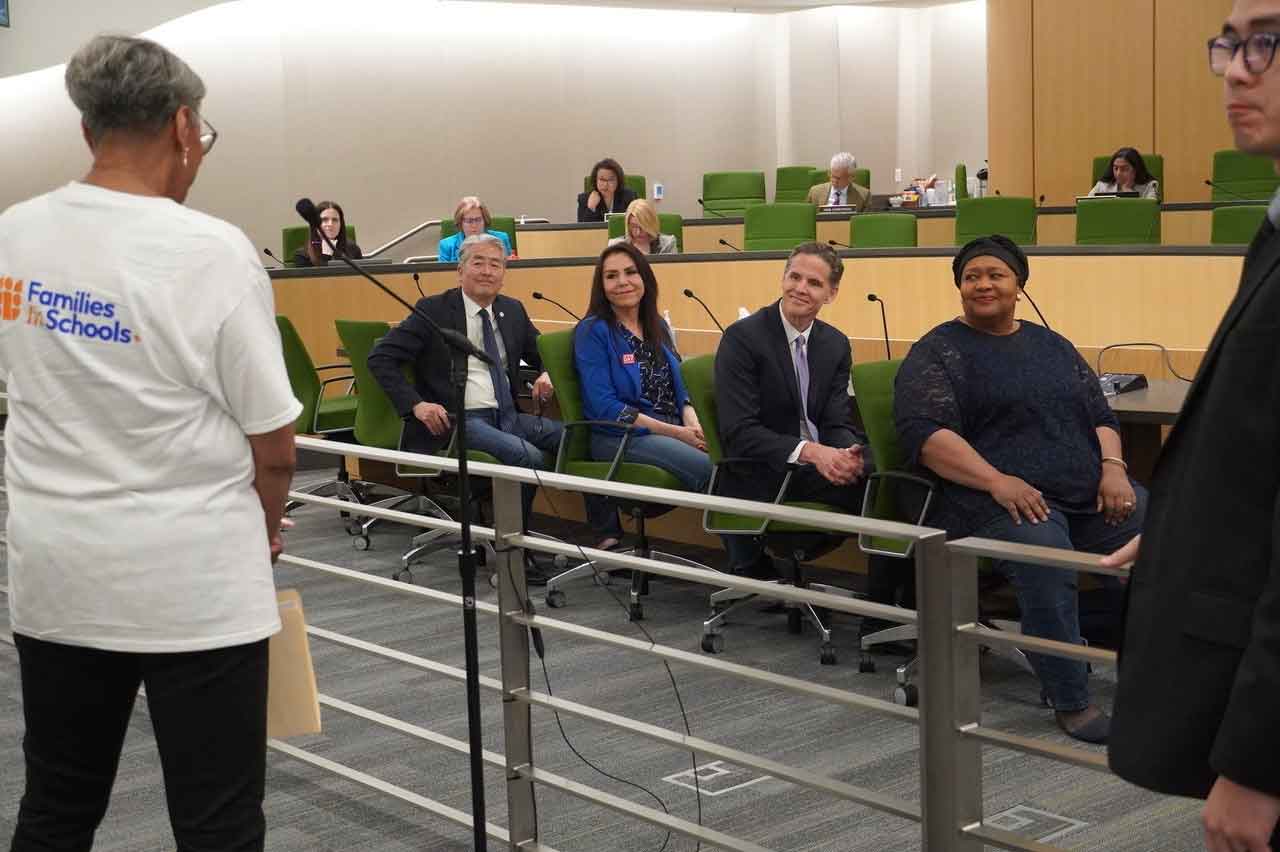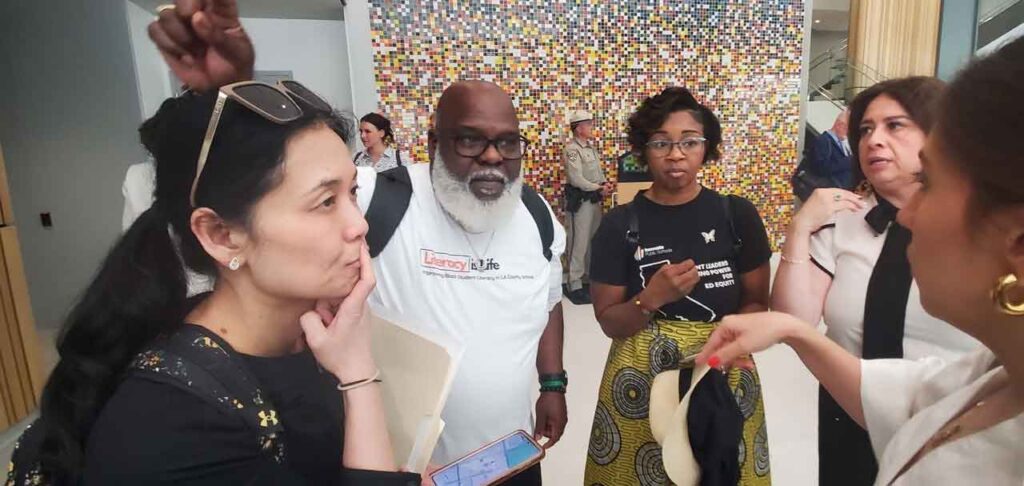Childhood Literacy Bill Supported by NAACP and CTA Moves Closer to Becoming California Law
The Assembly Committee on Education passed previously stalled legislation after an agreement was struck to strengthen early childhood literacy efforts in the state by equipping educators with the necessary tools and training.

By Antonio Ray Harvey | California Black Media
The Assembly Committee on Education passed previously stalled legislation after an agreement was struck to strengthen early childhood literacy efforts in the state by equipping educators with the necessary tools and training.
Assembly Bill (AB) 1454, authored by Speaker Robert Rivas (D-Hollister), Assemblymember Al Muratsuchi (D-Torrance), and Assemblymember Blanca Rubio (D-Baldwin Park), unanimously passed out of committee with a 9-0 vote.
The evidence-based reading instruction bill, supported by the National Association for the Advancement of Colored People (NAACP) California-Hawaii State Conference, now moves on to the Committee on Appropriations for review.
“This legislation is essential, important progress, and it reflects agreement and robust consensus on ways to provide educators the evidence-based tools they need to support California’s diverse students,” Rivas said in an April 30 statement. “We must make sure every child, no matter their background, has the opportunity to become a confident and thriving reader.”

Supporters of AB 1454 from around the state attended the hearing. The Assembly Education Committee passed the bill with a 9-0 vote. It is now headed to the Committee on Appropriations for review. CBM photo by Antonio Ray Harvey.
AB 1454 would require the California Department of Education to identify effective professional development programs for educators primarily focused on teaching reading in transitional kindergarten through fifth grade.
It also requires the State Board of Education to adopt updated English language arts and English language development instructional materials. Additionally, the Commission on Teacher Credentialing would be required to update school administrator standards to include training on how to support effective literacy instruction.
The legislation was authored and introduced by Rubio as AB 2222 last year. She said was designed to implement evidence-based methods, also known as “the science of reading,” a scientifically-based research approach that advises how pupils are taught to read.
The bill stalled in April 2024 when the California Teachers Association (CTA) and other education stakeholders opposed the bill, questioning a mandate that would have required all school districts to standardize instruction and required training.
Rubio reintroduced the bill as AB 1121, but it too failed to advance, prompting Rivas to create AB 1454. After multiple rounds of negotiations, an agreement was made that reading instruction training would be discretionary.
Patricia Rucker, a legislative advocate for the CTA and former State School Board of Education member, said the agreement reached required each party involved to make concessions about implementation.
“Reasonable people can disagree on reasonable things, but we also can show the world how you can disagree and come together,” Rucker said during the hearing held at the State Capitol Swing Space. “We’re committed to continuing the work on this bill to keep the bill moving forward.”
Rubio said she was close to surrendering the fight for the bill, stating that the process “by far, has been the hardest thing that I have ever done in nine years as a legislator.”
“Sometimes I was ready to walk away,” she said, “but for the coalition (of supporters), parents, family members, and of course, our Speaker, for finally sitting us down and saying, ‘Get it done. Get it done.’”
Marshall Tuck, the CEO of EdVoice, told California Black Media that one-third of states have integrated evidence-based reading instruction into their early literacy policies and have done so with measurable success.
For example, Mississippi rose from 49th in the nation in 2013 to 9th place in fourth grade reading in 2024, Tuck said. Louisiana improved from ranking 50th, the last in the country, up to 16th.
California ranks 33rd in overall fourth grade reading proficiency, 39th out of 42 states for Black students, and 38th out of 48 for English learners, according to 2024 data from the National Assessment of Educational Progress.
“Reading is a civil rights issue, and it demands urgent action,” Tuck said. “There are a lot of challenges that go into reading, but this is a big step forward to make sure that at least every child in a public school in California is going to be taught based on what the research says is the most effective way for children to read.”
By the numbers, some educators are concerned about students’ reading development by the time they reach the third grade. EdVoice has produced data indicating that many children in California are not reading on grade level by the end of the third grade and a large number of them complete elementary school without the language development and literacy skills required.
Statewide, about 1.6 million students are enrolled in kindergarten through third grade, and 63% are from low-income communities. From that pool, 75% are Black or Latino, and 34% are English learners. Only 2 out of 10 Black students were reading at third grade level, according to EdVoice.
Tonya Craft-Perry, an educator and member of the Black Parent Network, supports AB 1454. She told CBM that poor literacy skills, particularly at the third-grade level, affect Black and Latino students disproportionately – a disadvantage that could lead them into the “school-to-prison pipeline.”
When students experience academic struggles, it can lead to dropping out of high school, and ultimately, incarceration, said Craft-Perry.
Craft-Perry added, “Literacy is the one thing that is going to take you through all parts of life. Yes, we want students to be able to read and able to write, but also to understand how to use critical thinking skills, how to research, and know how to present information in a way that shows that they understand what they have read.”









